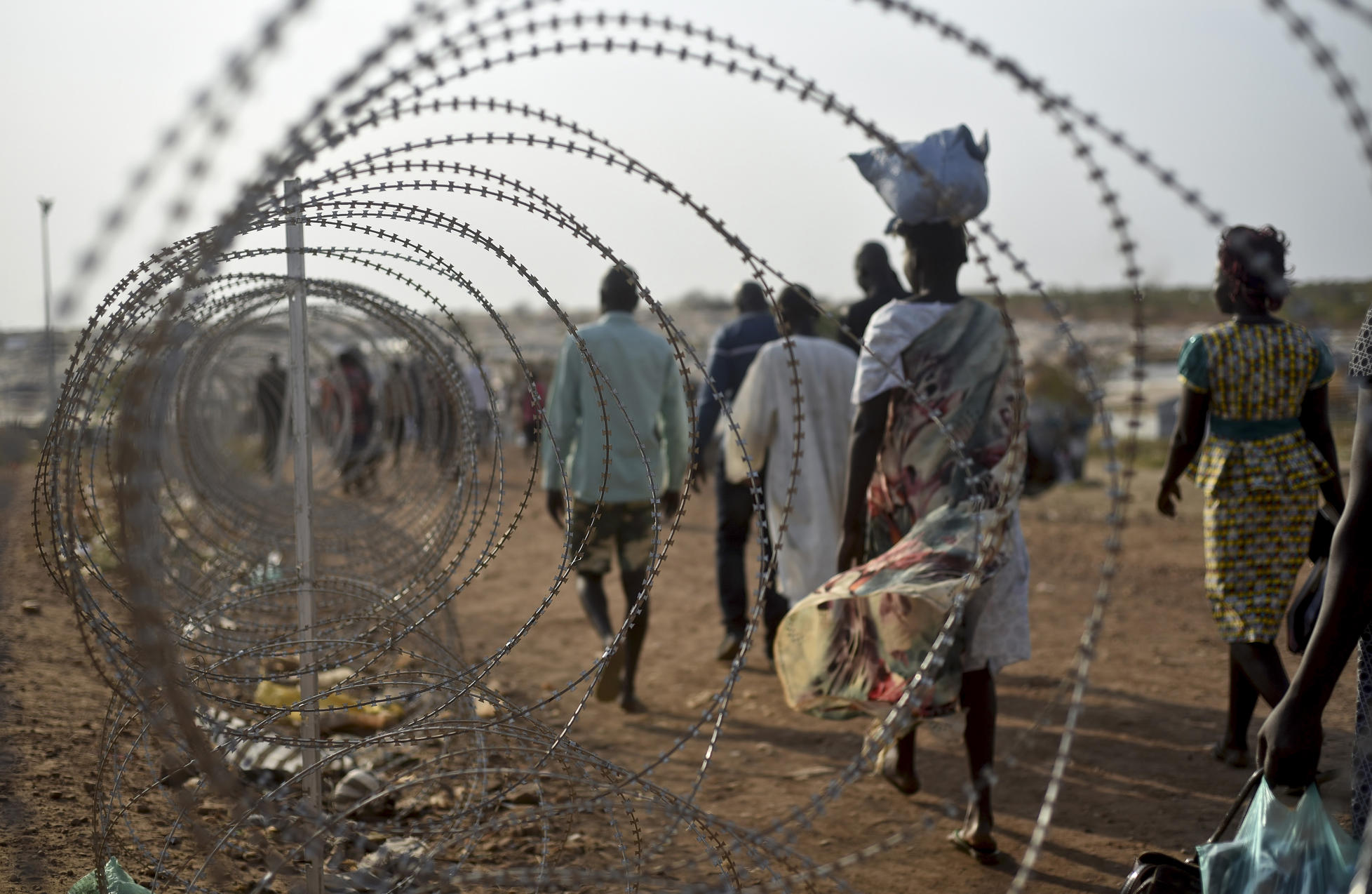
JUBA, South Sudan — At a sprawling displacement camp on the outskirts of the capital, women have faced a wrenching choice: risk starvation or sexual assault.
When her family ran out of food last month, Angelina Nhokmar, a 20-year-old mother of two, ventured outside the camp’s gates. She said she was lucky to have made it to the market and back unharmed, because dozens of women were raped by government soldiers in recent weeks as they made the same journey.
“It’s not safe,’’ she said, tossing handfuls of sorghum into a pot of boiling water. “Our enemies are outside.’’
The civil war that ripped apart South Sudan, the world’s youngest country, ended on paper months ago.
But clashes between the country’s rival factions in July put a chokehold on regular food distribution for the tens of thousands of people stranded in United Nations-run displacement camps. As families struggled to find sustenance, they endured an increase in health care crises, ethnic tensions, and sexual violence.
Nearly 30,000 people have been sheltering at UN sites around the capital, Juba, since South Sudan erupted in civil war in 2013. For more than two years, soldiers loyal to President Salva Kiir — who belongs to the Dinka ethnic group, South Sudan’s largest — battled troops led by Riek Machar of the Nuer ethnic group, which is believed to be the second-largest.
Tens of thousands of people lost their lives in the war, and troops on both sides committed human rights abuses against civilians on a devastating scale.
A peace deal officially ended the fighting last year. Machar, who had served as vice president before being fired in 2013, agreed to become Kiir’s deputy once again and moved back to Juba in April.
But then fighting broke out again between the two sides on July 7, killing hundreds. Machar’s residence was destroyed, and he fled the capital. He has refused to return to Juba unless more international troops are deployed. Kiir opposes this, arguing that the 12,000 UN peacekeeping troops already stationed here are enough.
For years, the displacement camps have been worlds unto themselves: communities complete with churches, shops, and schools. But they are also plagued by overcrowding, recurring shortages of basic goods, and the uncertainty faced by residents who have no idea when, if ever, they will feel safe enough to leave.
So they stay, cloistered inside barbed-wire fences guarded by UN troops who have failed to keep peace in the capital or even to prevent assaults just outside the camps’ perimeters.
Sexual assaults in Juba surged last month, to at least 217 reported cases, the UN human rights chief, Zeid Ra’ad Al Hussein, said in a statement Thursday.
Members of South Sudan’s own national army, he said, seemed to be responsible for most of the assaults. And most of the victims, he added, were displaced Nuer women and girls.
Many were women living in the camps who ventured out to the markets when food ran out. Others were fleeing the clashes and making their way to the displacement sites for the first time.
The civilians who came to these camps in 2013 were overwhelmingly Nuer. Last week, thousands of them demonstrated against Kiir for recognizing a new vice president to take Machar’s place in the transitional government, calling it a violation of the peace deal.
Such a gathering would be unimaginable now in central Juba. The streets of the capital are firmly under the control of the president’s forces, though they are still tense. Many properties have been destroyed, and many more looted — often by men wearing army uniforms.
International partners have also suffered, including the UN peacekeeping mission, which lost two Chinese soldiers to crossfire inside the camp last month, and the World Food Program, whose main warehouse in South Sudan was looted from top to bottom in one of the worst such episodes the organization has experienced in years.
It wasn’t just the food, which totaled about 4,500 metric tons and consisted mostly of nutritional supplements for children and pregnant or nursing mothers, according to a spokeswoman, Challiss McDonough.
“Everything was stripped,’’ she said. “Technical equipment, generators, fuel stocks — every single thing was gone.’’
Also stolen were several trucks specially outfitted to deliver food across the country, a near-impossible task for normal vehicles in the current rainy season. That means the warehouse looting in Juba, which would have required a herculean effort involving hundreds of people over several days, will have ripple effects all across this desperately hungry country.
Last week, the World Food Program, which still has a smaller warehouse in the vicinity of the capital, delivered a new shipment of food to the camps. But there is not enough for everyone. People said they had been asked to share their rations with thousands of newcomers.



